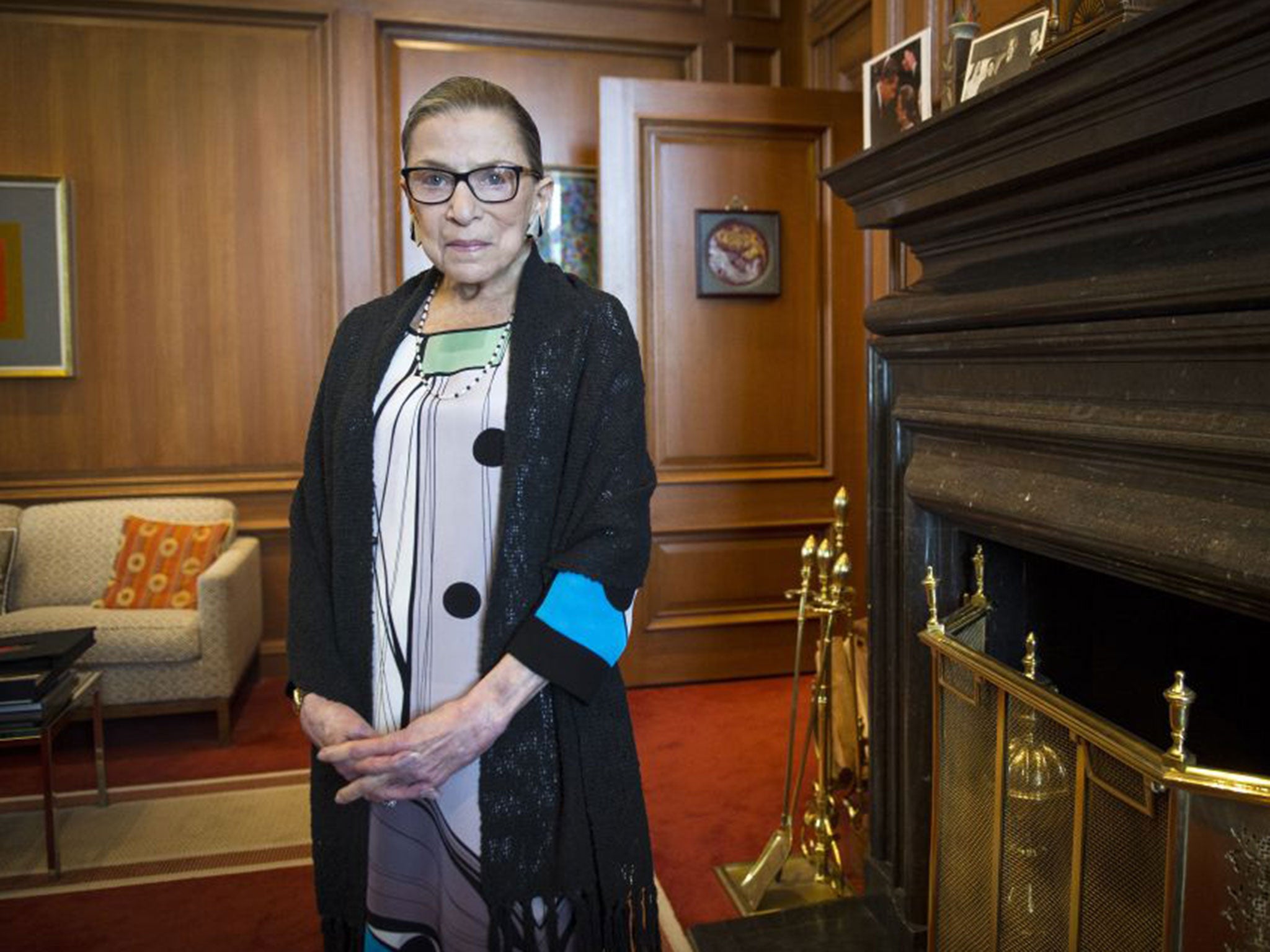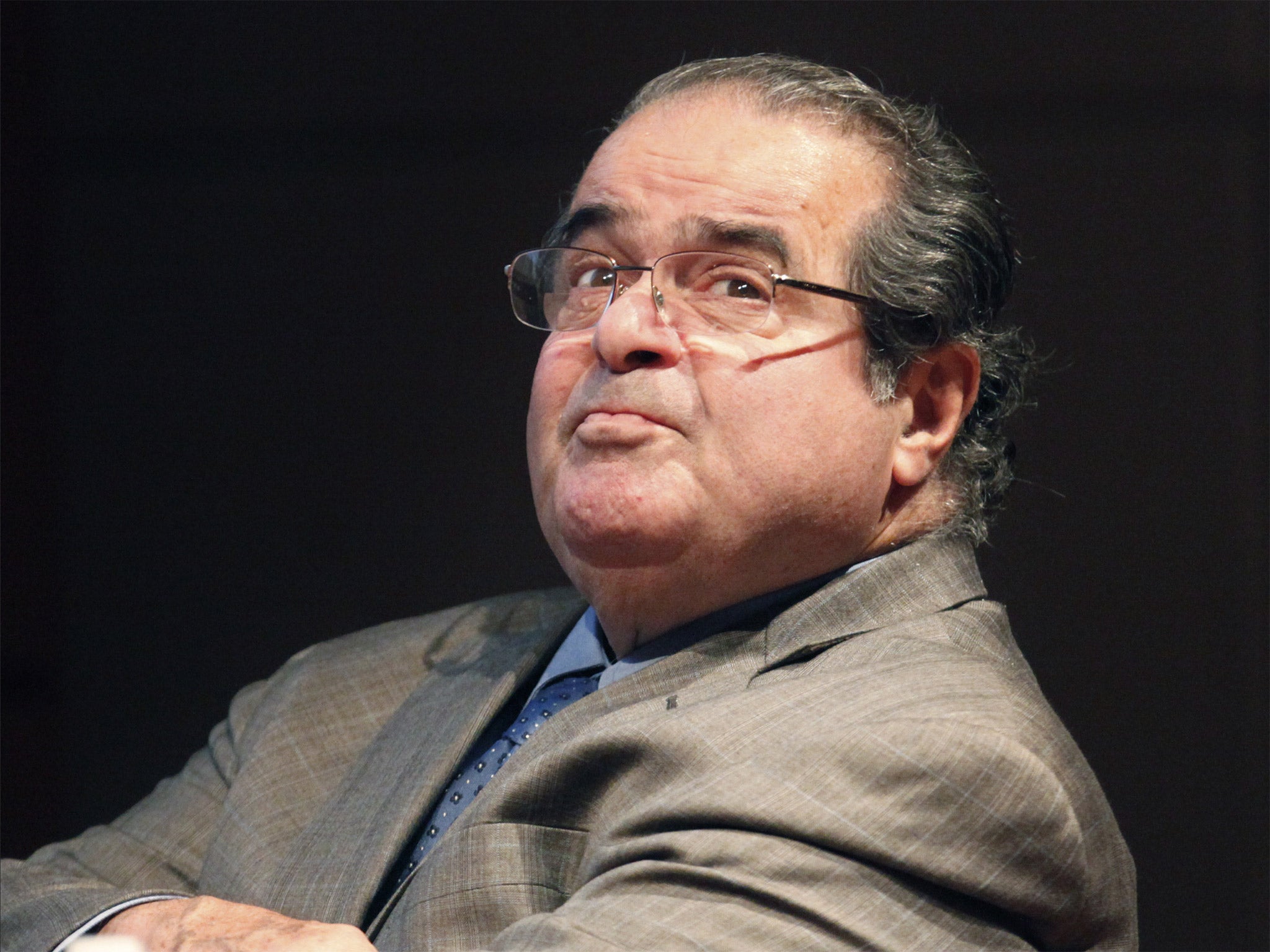Donald Trump’s Supreme Court picks will leave his mark on America’s biggest ideological struggles
The Court will be weighing in on issues from abortion to immigration and gun rights

The future of the US Supreme Court was set to take centre stage at the first meeting between President-elect Donald Trump and the Republican Senate Majority Leader Mitch McConnell in Washington on Thursday, in particular whom he might appoint to fill its one vacant seat.
Jubilant in the wake of his victory on Tuesday, Republicans are now counting on Mr Trump to use the power of the presidency to tilt the court back to the ideological right, beginning with nominating a conservative to fill the seat left empty by Antonin Scalia, who died in February.
For Democrats, by contrast, the defeat of Hillary Clinton means they have lost what would have been a rare opportunity to forge a liberal-leaning majority on the country’s highest court for the first time since the early 1970s and repel conservative attempts to undermine their progressive priorities, notably on issues like abortion, immigration and minority rights.
The ideological balance in the Supreme Court was one principle issue that drove voters to pick either Mr Trump or Ms Clinton on election day with exit polls indicating that for one in five of them it was in fact their most important consideration.

The surprise win by Mr Trump is now seen as vindicating the risky strategy adopted by Senator McConnell and his Republican colleagues in the US Senate to block President Barack Obama’s nominee to fill the ninth seat on the Court, Merrick Garland, the chief judge of the US Court of Appeals in Washington DC, whose record they considered insufficiently conservative.
Those Democrats who had never imagined that Mr Trump could win had quietly been scoffing that the Republicans had shot themselves in the foot because as president, Ms Clinton was sure to pick someone even more reliably left-leaning than Judge Garland to replace Scalia.
While the tables are now turned, with his first pick Mr Trump will only have the opportunity to return the Court to where it was until the death of Scalia. While the reliably conservative jurist was still alive, the Court was often in a virtual ideological balance with Justice Anthony Kennedy often casting the deciding vote on issues that pitted the right against the left.

However, it is what happens to the Court over the longer term that has Democrats wringing their hands. At least three other sitting justices are old enough that even if he only has one term in the White House, Mr Trump is likely to have other opportunities to stock the institution with jurists to his – and, presumably, to conservatives’ – ideological liking.
Justices Ruth Bader Ginsburg, 83, Justice Kennedy, 80, and Stephen Breyer, 78, could all conceivably opt to retire in the next four years. If Mr Trump were to be re-elected for a second term, he will have an even greater chance of leaving a mark on the Court that could endure for a generation or longer.
The implications for the future ideological identity of America are profound. There is almost no political battle that does not at some point end up before the Supreme Court. Under President Obama it has been asked to weigh in on everything from the constitutionality of his landmark healthcare reform law to campaign financing, the death penalty, the rights of gay people to marry and even, recently, the rights of transgender people to use the public facilities of their choice.

The current standards that permit, but also restrict, a woman’s ability to seek an abortion laid down in the 1973 Roe v Wade Supreme Court ruling are certain to become a particular flashpoint. Mr Trump’s ascendancy will embolden a movement that has been growing on the state level over the last several years to overturn the landmark ruling or at least weaken its provisions.
Justice Kennedy again showed his influence on the Court in June when he joined his liberal colleagues in striking down a law passed by the Republican state legislature in Texas that imposed harsh limits on the ability of abortion clinics to operate in the state and threatened effectively to end access to abortions for millions of Texas women, especially minorities.
That suggests that even with a first Trump pick on the Court, however conservative he or she may be, Roe v Wade will be safe for a time. If more Trump nominees find themselves inside the edifice of the Court that could quickly change, however.
Other advances under President Obama that are cherished by the left could be in peril more quickly. His most important attempt to change the immigration debate in the United States – an executive order that was designed to protect about five million undocumented residents from deportation – has already been blocked by the lower courts and a ruling by the Supreme Court overturning it could come swiftly next year if Mr Trump doesn’t simply reverse the executive order on his own before that.
Legal experts and historians are quick to point out, however, that presidents who think they have chosen Supreme Court nominees in their ideological images are sometimes disappointed because once in the building there is no guarantee they will vote accordingly. Justice David Souter, nominated by President George H W Bush in 1990 wasted no time in aligning himself with the Court’s liberal wing.
As Mr Trump ponders who to pick to replace Scalia, the biggest question for Senate Democrats will be whether to attempt to return the favour paid them by Republicans this year in their successful block of Judge Garland and vow to use the ability they would in theory have to filibuster any confirmation vote. There would be very considerable risks to such a strategy, possibly opening the way to Republicans to change the rules of the chamber to end the filibuster capacity of the minority on all matters for good, sometimes known as the “nuclear option”.
As to who Mr Trump’s first pick might be, we have some clues. Twice in the course of this year, the President-elect offered a list of names of sitting judges in lower courts who appealed to him. Most have a strong record of conservative activism from the bench.
During one of the debates Mr Trump also gave some idea of the kind of person he would be looking for. “They'll respect the Second Amendment and what it stands for, what it represents,” he offered, adding that he would expect them to be “pro-life” and pro-gun rights.
Join our commenting forum
Join thought-provoking conversations, follow other Independent readers and see their replies
Comments